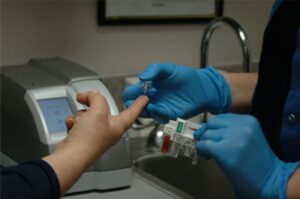This issue of Making a Difference! is brought to you by…
TCD Enterprises
Coni Dutka
330.354.0001
Send Us An Email
In this issue…
♦ Concerned about diabetes? ♦ Symptoms of diabetes…
♦ A diabetes primer… ♦ Health consequences of diabetes
♦ Nutritional help if you’re worried about diabetes…
♦ The Shaklee 180 solution
♦ “How Healthy Happens” Recipes ♦ A Life Shake favorite
 “Health is natural… disease is unnatural. Both may be fed by the food you eat! The choice of those foods is your responsibility. Eat foods that are rich in nutritional elements, and you will build strong, healthy cells. Eat altered, devitalized foods, and you will suffer from tissue cell starvation.”
“Health is natural… disease is unnatural. Both may be fed by the food you eat! The choice of those foods is your responsibility. Eat foods that are rich in nutritional elements, and you will build strong, healthy cells. Eat altered, devitalized foods, and you will suffer from tissue cell starvation.”
~ A Study Course in Nutrition by Forrest Shaklee Sr., DC, DD
Concerned about diabetes?
Diabetes is a significant medical problem that presents major implications for an individual’s health and… it’s also one of the leading causes of death in the United States. Though individuals of all ages can develop or be born with diabetes, older adults and seniors are among some of the most at-risk populations.
Whenever most people hear about diabetes, they assume there are just two forms of the disease. type 1 is the kind you get as a child, while type 2 develops over time. Actually, there are eleven variations of diabetes. But we’re going to focus on…
Type 2 diabetes
Type 2 diabetes is a metabolic condition resulting from resistance to insulin or an inability to create enough insulin to meet the needs for glucose metabolism. Older adults and seniors are at an increased risk of developing type 2 diabetes.
Symptoms of diabetes…
Symptoms, when they are present, can be subtle:
____ Constant thirst
____ Urinating more than usual
____ Increased appetite
____ Weight loss, even when you are eating enough… seen most often in Type 1 diabetes
____ Extreme fatigue
____ Blurry vision
____ Pain, tingling or numbness in the feet and/or the hands
If you have any of these symptoms or if diabetes runs in your family, see your health care practitioner.
A diabetes primer…
Diabetes is a metabolic disorder associated with elevated blood glucose. Normally, we take in glucose from the stomach when we eat foods containing carbohydrates. The glucose elevation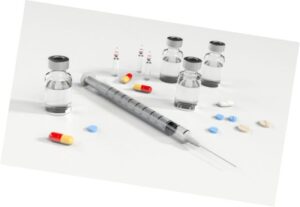 triggers the islet cells in the pancreas to excrete the hormone insulin. Insulin binds to cells in the body allowing the cells to take up the glucose to use as fuel for cells.
triggers the islet cells in the pancreas to excrete the hormone insulin. Insulin binds to cells in the body allowing the cells to take up the glucose to use as fuel for cells.
Without insulin production or with insulin resistance, glucose cannot get into the cells for energy. When your cells do not get enough nutrients, the sugar (glucose) in the bloodstream elevates, damaging organs and blood vessels. This is when diabetes occurs.
Two types of diabetes
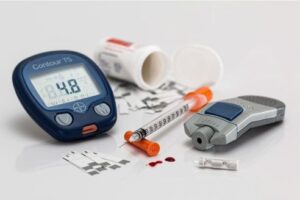 The first is type 1 (insulin dependent) diabetes… an autoimmune disease… where the body makes antibodies that destroy the islet cells of the pancreas, leading to very low insulin levels and extremely high blood sugar (glucose) levels. Once the death of the islet cells occurs, the process is irreversible. The patient’s only recourse is to take shots of insulin to make up for the insulin the body doesn’t make.
The first is type 1 (insulin dependent) diabetes… an autoimmune disease… where the body makes antibodies that destroy the islet cells of the pancreas, leading to very low insulin levels and extremely high blood sugar (glucose) levels. Once the death of the islet cells occurs, the process is irreversible. The patient’s only recourse is to take shots of insulin to make up for the insulin the body doesn’t make.
The second is called type 2 diabetes. In this type of diabetes, the individual makes enough insulin; however, the cells become resistant to it and even with elevated insulin levels, not enough glucose enters the cells. The blood sugar rises and causes the same complications as type 1 diabetes. Fortunately, this type of diabetes can be treated with medication, healthy lifestyle choices, and other natural therapies. Type 2 diabetes, unlike type 1 can be reversed, with weight loss and a healthy diet.
insulin; however, the cells become resistant to it and even with elevated insulin levels, not enough glucose enters the cells. The blood sugar rises and causes the same complications as type 1 diabetes. Fortunately, this type of diabetes can be treated with medication, healthy lifestyle choices, and other natural therapies. Type 2 diabetes, unlike type 1 can be reversed, with weight loss and a healthy diet.
Risk factors for type 2 diabetes
Anyone can get type 2 diabetes, but certain high risk factors exist. Do you fall into any of these categories?
____ People age 45 and older
____ Those who are obese or overweight with a BMI or 35 or more
 ____ Those who have had gestational diabetes
____ Those who have had gestational diabetes
____ When type 2 diabetes runs in the family
____ Those who have been diagnosed with pre-diabetes
____ Poor lifestyle choices, like unhealthy diet and lack of exercise
____ Those who have low HDL (good) cholesterol or high triglycerides
____ Those who have high blood pressure
____ African Americans, Latinos, Native Americans and Asian Americans / Pacific Islanders are at higher risk for contracting this disease
If any of these apply to you, make sure you visit your health care practitioner yearly to monitor your blood sugar levels. And, as always, eat cleanly, exercise regularly, and take your Shaklee food supplements!
Health consequences of diabetes
The high circulating blood sugar in diabetics cause blockages of the blood vessels of the body, leading to a variety of complications.
Heart Disease / Stroke
According to the World Health Organization, 50% of diabetics die from heart disease or stroke, and the American Diabetes Association reports that 71% of adults with diabetes also have hypertension.
Kidney Disease
Excess blood sugar spills out into the urine, which overloads the kidneys and can cause kidney failure. 44% of all kidney failures in 2011 were the result of diabetes.
 Eye Disease
Eye Disease
Diabetes can cause blindness by causing the tiny vessels of the retina or back of the eye to rupture and spill blood across the retinal surface, a condition called diabetic retinopathy, the leading cause of blindness in adults age 20 to 74.
Peripheral Vascular Disease
According to the Centers For Disease Control, 60% of all non-traumatic amputations of lower limbs occur in people with diabetes due to nerve damage.
Diabetic Neuropathy
High blood sugar damages the peripheral nerves of the body.
Premature Death
According to the American Diabetes Association, diabetics have two times the risk of death from any cause as compared to people of the same age without diabetes.
Five Steps to Stay Healthy
Nutritional help if you’re worried about diabetes. ..
..
One of the most important elements in diabetes management is diet because food and eating practices affect blood sugars the most. An unhealthy diet will lead to out of control blood sugar, which greatly increases risks for heart disease, stroke, neuropathy, retinopathy, kidney disease, and premature death.
Supplements that help
One of the main reasons that nutritional support is crucial in diabetes treatment is that it is a nutritionally wasting disease. People who have diabetes, especially those who do not follow a nutrient-rich diet, tend to be deficient in vitamins because elevated glucose levels act like a diuretic, causing a substantial loss of nutrients in the urine. Proper nutrient intake also supports the body’s ability to use insulin, which keeps blood sugars stable.
Some vitamins, minerals, and antioxidants are therapeutic in the prevention and treatment of type 2 diabetes and its associated conditions, as documented by the National Center for Biotechnology Information, a division of the National Institute of Health.
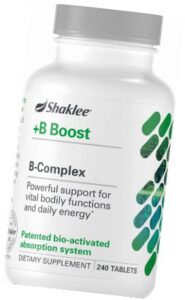 ♦♦ Biotin (found in B-Complex) is required by the body to process glucose. According to the National Institutes of Health, a combination of biotin and chromium may lower blood sugar and also relieve diabetes-related nerve pain.
♦♦ Biotin (found in B-Complex) is required by the body to process glucose. According to the National Institutes of Health, a combination of biotin and chromium may lower blood sugar and also relieve diabetes-related nerve pain.
♦♦ Chromium (found in Glucose Regulation Complex) facilitates the binding of insulin and the uptake of glucose into the cell, decreasing fasting glucose levels, improving glucose tolerance, and lowering insulin levels. It is also effective in decreasing the bad LDL cholesterol and triglycerides while increasing good HDL cholesterol in all adults.
♦♦ Inositol (found in Lecithin) promotes healthy nerve function and is a promising option to treat diabetic neuropathy.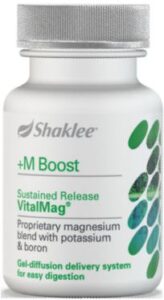
♦♦ Magnesium (found in Sustained Release VitalMag) is an essential cofactor for more than 300 enzymes. Some studies have found that low dietary magnesium intake has been associated with increased incidence of type 2 diabetes and with diabetic retinopathy.
♦♦ Vitamin B1 (found in B-Complex) is used to treat diabetic neuropathy in combination with vitamins B6 and B12, Vitamin B3, and plays significant roles in the functions of hundreds of enzymes and in the metabolism of carbohydrates, lipids, and proteins.
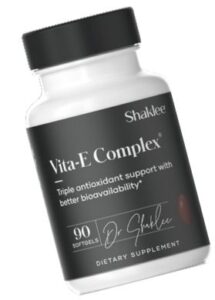 ♦♦ Antioxidants, especially vitamins A (found in CarotoMax), C (found in Sustained Release Vita-C), and E (found in Vita-E Complex), are substances which prevent cellular damage and can help those with diabetic retinopathy in particular. Low levels of these vitamins and specifically vitamin E have been associated with increased incidence of diabetes.
♦♦ Antioxidants, especially vitamins A (found in CarotoMax), C (found in Sustained Release Vita-C), and E (found in Vita-E Complex), are substances which prevent cellular damage and can help those with diabetic retinopathy in particular. Low levels of these vitamins and specifically vitamin E have been associated with increased incidence of diabetes. 
♦♦ Alpha Lipoic Acid (found in Organic Greens Booster) is an antioxidant used to treat pain and numbness in those with diabetic neuropathy.
♦♦ Coenzyme Q10 (found in CoQHeart) is a nutrient that diabetics tend to be deficient in and one that is required to properly metabolize blood sugar.
Organic Greens Booster
The Shaklee 180 solution
Diet is of utmost importance to the overweight or obese as they are most at risk to develop diabetes. According to the Centers For Disease Control, even a 5% to 7% loss in body weight can not only prevent or delay the onset of type 2 diabetes in the overweight, it can reverse it, as well.
While most fad diets are just that… fads, the Shaklee 180® Program has been clinically proven to help people lose weight and keep it off permanently.
Powered by Leucine®, Shaklee’s clinically tested products help you keep muscle you have, burn fat you don’t need, and lose inches you don’t want.
Why does leucine work?
Leucine is an essential amino acid that helps with protein synthesis to build lean muscle. Leucine-enriched protein helps your body preserve muscle mass, so you lose the right kind of weight and keep metabolism strong.
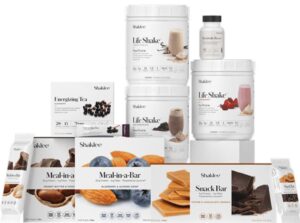 Shaklee 180 Turnaround Kit
Shaklee 180 Turnaround Kit
Your customizable two-meals-a-day kit contains everything you need for 4 weeks, with your choice of flavors. The program also includes a step-by-step guide to help you get started and online access to support tools, healthy recipes, meal plans, exercise programs and lifestyle information… to help you lose the weight and learn how to keep it off. And it’s…
Safe, Proven, and 100% Guaranteed!
Dr. Lori’s Shaklee 180 Journey
“How Healthy Happens” Recipes
Shaklee’s Dr. Erin Barrett was recently featured on @foodnetwork. Here is a recipe she prepared on the show:
Not So Average Avocado Toast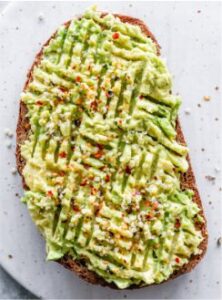
Ingredients:
____ 1 scoop of Collagen-9
____ 1 ripe avocado
____ 1 large piece of organic or local sourdough bread
____ ½ lemon
____ 1 tablespoon of hemp seeds
____ Salt
____ Pepper
____ Red pepper flakes
____ Feta Cheese (if you like)
Directions:
1. Mash your avocado then stir in Collagen-9 until completely dissolved.
2. Add pinch of salt & pepper and a little squeeze of lemon.
3. Top on toasted sourdough slice.
4. Then sprinkle on hemp seeds, red pepper flakes, a little more salt and pepper as needed, and feta if desired. Enjoy!
And here’s another recipe using Collagen-9:
 Cinnamon Vanilla Latte
Cinnamon Vanilla Latte
Ingredients:
____ 1 cup milk of choice (we like flax or cashew)
____ ¼ tsp vanilla extract
____ ¼ tsp cinnamon
____ ½ cup strong brewed hot coffee
____ 2 scoops Collagen-9
____ Optional: sweetener of choice (honey, agave, stevia)
Directions:
1. Add milk, sweetener, vanilla extract, cinnamon, and collagen to a blender.
2. Add the coffee and blend, then pour in a large cup and enjoy. Or… pour the milk mixture into a large cup of coffee and stir well.
Customize with your favorite spices or different extracts.
A Life Shake favorite
Here is one of Shaklee’s most shared Life Shake recipes.
Orange-Mango Shake
Ingredients:
____ 2 scoops French Vanilla Life Shake
____ 2 mandarin oranges (peeled)
____ ½ cup frozen mango
____ 10 oz. cold water
____ Ginger (optional)
Directions:
Shakes taste best cold. Blend all ingredients together with ice in a blender until creamy.

